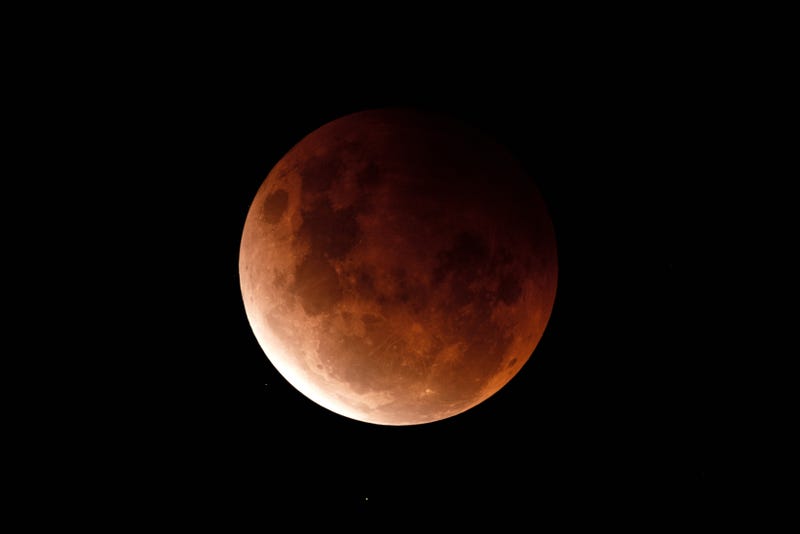
LOS ANGELES (KNX) - The moon: we see it every night. We track its phases. We plant flags on it. In an uncertain and ever-changing world, the moon has always been there, and hopefully, it always will be.
But what exactly is the moon doing up there? Where did it come from? And what would happen if it vanished?
Paul Hayne, assistant professor in astrophysical & planetary sciences at the University of Colorado, Boulder, offered some answers on “I’ve Got Questions” with Mike Simpson.
“It’s not at all a given that our planet would have a moon,” he said. “Earth is one of four of the rocky planets in our solar system, and we’re the only one that has a big moon.”
According to Hayne, the leading theory is that during the first few hundred million years of our solar system’s history, the Earth collided with a “proto-planet” roughly the size of Mars. A chunk of our heavenly body broke off in the collision, becoming what we now know as the moon.
It was a happy accident. Without the moon, human life on Earth might not have been possible.
The moon’s gravitational pull has a stabilizing effect on the planet’s rotation, Hayne explained. Without that stabilization, we would wobble much more during the orbit around the sun, which would dramatically affect the climate.
“Mars doesn’t have a large moon, so its wobbles are much more extreme, and Mars goes through these extraordinary climate swings that would devastate life as we know it on Earth,” he said.
The moon’s pull also impacts how quickly the Earth spins on its axis. If you’ve ever wished there were more hours in the day, here’s some good news: as the moon gradually moves farther away, the planet is spinning more slowly.
“Basically, the length of the day on Earth is actually getting longer as the moon recedes,” Hayne said. “A billion years ago, the length of a day on earth might have been only 20 hours, now we have a 24-hour day.”
Since the moon is only drifting away by a few centimeters every year, we won’t be seeing any 25-hour days within our lifetimes. But if the moon were to disappear overnight, what would happen? What is the moon made of, anyway? And why do moon rocks smell like gunpowder?
For those answers, listen to the full episode of “I’ve Got Questions” in the audio above, and subscribe on Audacy, Apple Podcasts, Stitcher, Amazon Music, and Spotify.
Follow KNX News 97.1 FM
Twitter | Facebook | Instagram | TikTok


